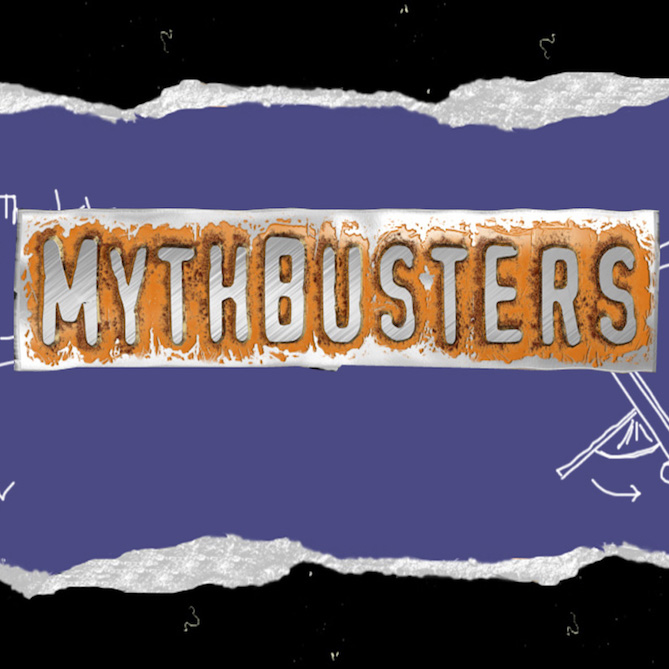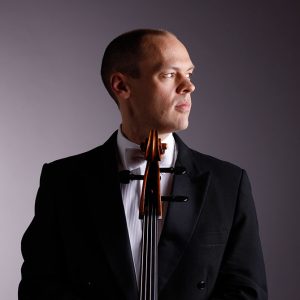
Myth Busters
Brant Taylor
Instrumentalists often prepare for an orchestra audition by seeking feedback on their preparation from a teacher or colleague. Perhaps because my career includes both orchestral playing and teaching, I am frequently asked to coach players who are preparing solo work(s) and orchestral excerpts for a given audition. Some players I hear are very new to the audition game, while others are already seasoned professionals looking to step up to another ensemble or for a promotion in their current group. After years of talking with these musicians about auditions in general and about the specifics of their preparation, I’ve noticed several assumptions that players sometimes make about auditions. While some of these assumptions are true, and made with good reason, many others are best described as myths. Some of these are half-truths, and still others are outright fallacies. Since audition preparation can be heavily influenced by certain common assumptions, calling attention to the myths might help audition-takers avoid being sidetracked by them—especially those who are new to the audition game and may not know what is expected or desired from behind the screen. Every orchestra and audition committee is unique. Nevertheless, discarding certain ideas should help lead to a performance which will get positive attention from practically any committee.
1. Boring, “perfect” playing is what will win an audition.
While it is true that a candidate will occasionally advance past a preliminary round by doing little more than playing the right notes in tune with good rhythm, this might say more about the other candidates than it does about what a committee actually wants to hear. What musician wants their search for a new colleague to result in a boring, uninspired player sitting next to them on stage—possibly for the next 30 years? It is true that you must demonstrate mastery of a number of basics to be successful in an audition, but too often people stop there and are afraid to go further and take a sophisticated view of the music that conveys depth or musical understanding.
2. If there is a screen between you and the committee, you should play everything a bit louder to “compensate” for the screen so that the committee can hear your sound better.
I’ve heard this more than you might think. Hopefully most if not all orchestras know that the screen belongs in front of the committee, not in front of the candidate. But regardless of where the screen is, playing louder because of it just makes you sound like you are playing louder. Trust in the fact that your sound will travel into the room and over the screen just as it is, and concentrate on working to make that sound exactly as you wish it to be.
3. You should know as many recordings as possible by the orchestra you are auditioning for, so you can emulate the style, tempi, fingerings, and/or bowings of the ensemble for the audition.
This is a major distraction to some audition candidates, and a completely unnecessary step in preparing a fine audition. While I would never advise a player to avoid recordings of the group they are auditioning for, it is much more important to develop a musical understanding of each work which is independent from any particular recorded interpretation—even a great one. It is absolutely imperative to remember that any decision you make in preparing an excerpt must be based on what sounds the best when you are playing alone. This can be, and often is, different from the choice you would make if you were playing the piece in the orchestra. Seasoned orchestral musicians have played the standard repertoire many times under any number of different conductors, many of whom bring their own bowed parts for us to use. This means that there is no “official” tempo, fingering, or bowing for any piece. Satisfy yourself with your playing rather than attempting to re-create anything from an orchestra’s recorded history.
4. If you make an error right off the bat, you might as well give up because the committee has already lost interest.
Definitely false. While it can be a psychological challenge to get past an unexpected mistake right off the bat (falling off the fingerboard during the first big shift in Haydn D, anyone?), many candidates forget that their general level of musicianship and instrumental control is what the committee will remember. If Jascha Heifetz played a screened audition for you and missed a few notes, would you advance him? Of course. The difference between something that sounds like a fluke and something that sounds like a general tendency in someone’s playing is quite easy to discern. A committee can generally forgive a fluke or two in the context of an otherwise well-played, artistically satisfying audition.
5. If you didn’t play for very long, head straight for the airport pub because you didn’t advance. (And the corollary: if you play longer or play more excerpts during your audition than others, it means the committee liked you better.)
Every orchestra structures its auditions differently, so it is impossible to say anything certain about this assumption. The more productive mindset is to refrain from expecting or assuming anything. It may be that only one committee member asked to hear more. In past Chicago Symphony Orchestra auditions where I’ve served on the committee, there have been many candidates who played for a relatively short time and advanced past the preliminary round. If it is immediately obvious that you play at a very high level, why couldn’t a committee advance you without a rigorous survey of the excerpts? I have also served on committees where candidates were so sure they did not advance that they actually left the building—only to be called back in a fluster because the committee voted to hear them play again.
6. If you don’t have access to a great old Italian cello to use for an audition, it is difficult to compete with someone who does.
The number of players who seek to borrow better instruments for an audition than the ones they own shows that many cellists feel their instruments are inadequate, or that a committee will be impressed by a superior instrument. Let’s agree that you can only sound your best on an instrument with which you are completely comfortable. This might be your own instrument, or it might not. If your instrument is of unusually inferior quality, perhaps looking to borrow something else is a good option—but only if you are afforded time to get to know the “new” instrument very well. Having a wonderful instrument in your hands does not guarantee anything if you are unsure of how to maximize its potential. Auditions contain enough unknowns already, so don’t make one of them be your instrument. If you’re unhappy with your instrument, don’t worry too much about it: it is true that the differences between consecutive instruments at an audition can be striking to the listeners at first—especially with respect to relative brightness/darkness of tone–but after less than a minute of playing, my ears adjust and are much more focused on what a candidate is doing with the instrument.
7. You should try to think about what the committee wants to hear, and adjust your playing accordingly.
This is related to nos. 1, 2, and 3, and creates a potentially unproductive mindset. Every committee member is different. Which of them are you aiming to please? What happens if trying to play to your perceptions of a committee’s desires puts you outside of your comfort zone with a particular excerpt? To approach the issue from a positive standpoint: what committee doesn’t want to hear someone with valid, sophisticated musical ideas and the technical means to express them? If you want to aim for what the committee wants to hear, this is the goal to aim for.
8. The best coach for your cello excerpts is a cellist.
This is not so much a myth as an incomplete assumption. Playing for other cellists can be a wonderful thing, and I’ve found the cello community to be incredibly supportive of its members. Beyond that, however, playing excerpts for non-cellists is always enlightening, often in ways that are unexpected. Within the string family, I encourage cellists to find a violinist to play for—preferably one who is both a fine player and a capable coach with a well-tuned objective ear. The nature of the violin, with its compact distances for the left hand and demanding repertoire, gives it a facility and ease that cellists admire. Aiming to please the ear of someone who doesn’t know the challenges unique to our instrument is a worthwhile endeavor. Singers and pianists often have insights about the music of Mozart and Schubert, to name just two, that are sometimes lost on string players. If success at an audition depends in part on showing real musical understanding of the composers we are playing, we must develop a view of music that is not overly cello-centric.
9. If an audition ends without anyone being hired, it means the committee thinks nobody is “good enough” for them.
Trust me: no group of people is more disappointed when nobody is hired than the members of a committee. Every orchestra and every situation is different, and the chance to hire a new player may only be possible if certain non-negotiable conditions are met. Committee members vote, opine, and discuss. Because auditions are by nature private events, often the audition candidates know very little about what happens after they are finished playing. Sometimes a music director and a committee have different ideas about which player to hire. In other situations, the committee hears good playing, but no single performance really galvanizes everyone behind the screen, making it difficult to reach a consensus. An orchestra’s contract may state that a candidate needs a particular number of votes from the committee to be hired, and sometimes nobody meets that requirement on a particular day. The desired outcome of an audition is always to hire a wonderful player for the position, but often several different elements of the process must be in agreement for that to happen.
This list is by no means complete, and I welcome the chance to clarify these points further in the comments.
